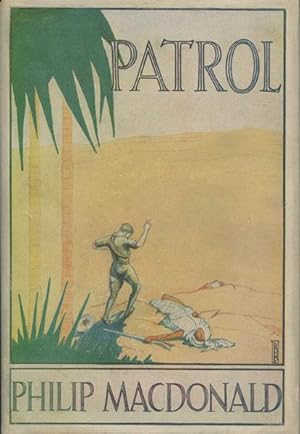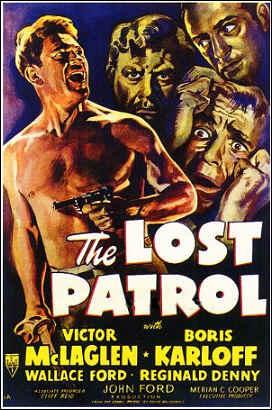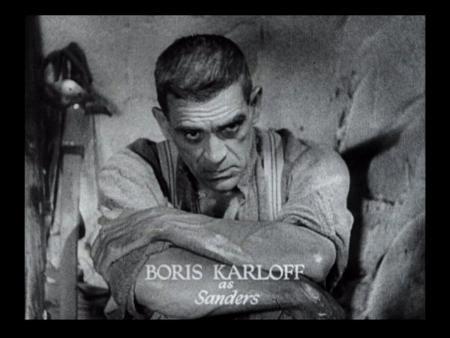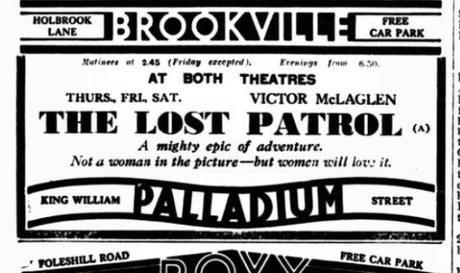Book Review by George Simmers: This is a Great War novel set in Mesopotamia (present-day Iraq), where British army units were fighting the Turks, and also local Bedouin tribesmen.
 The 1926 first edition dustjacket. It went through twelve impressions before 1935, when it was republished as one of the first Penguins.
The 1926 first edition dustjacket. It went through twelve impressions before 1935, when it was republished as one of the first Penguins.
A patrol of ten men has been sent in a mission across the desert, but on the first page its officer is shot by a distant sniper. He was young and inexperienced – the Sergeant refers to him as ‘the boy’ -the only one who knew what their mission was and knew where they were going; he had not got round to communicating that basic information to his sergeant, who is now left in charge.
“It’s a fine thing—a patrol patrollin’ without known’ what they’re at. An’ the orders locked up in that dead brat. They ought to have ’em on paper. They would in a real army.”
The Sergeant is now in charge, and takes the man and their horses on a long trek to what might be a distant oasis, or maybe a mirage. The desert is grim and featureless:
They had traveled perhaps eight miles; but this, for all the change in their surrounding, might have been less than ten yards.
It turns out to be an oasis, and one with water, and with dates that will eke out their meagre supply of food. But there are Arabs out there in the desert, used to fighting in this terrain, who one night kill the sentries and steal all the soldiers’ horses. After this, the men will be picked off, one by one.
The enemy outside is a threat, but the deeper problem is with the tensions within the group which gradually disintegrates because of the attitudes they bring with them from peacetime. We see the roots of the jealousies, animosities and prejudices that keep them from working together. The problems start with the officer, who wouldn’t trust his N.C.O.s with knowledge of the orders, but everyone in the group is distrustful of someone else, and they cause each other as much damage as the Arabs.
Saunders, an unstable man, is deeply religious, and disturbed when the other men make lewd remarks, or sing suggestive songs; Abelson, who is Jewish, is offensive about Saunders’s religion, while others are openly Anti-Semitic about Abelson. The conflicts between them are mostly verbal, but erupt in to violence sometimes, and there is an epic bare-knuckle boxing match at one point, between Abelson and the huge ex-sailor, Cook. The Sergeant does his best to preserve peace, and find ways of keeping the group together.
Because it is set in Mesopotamia, it can be more sceptical of the war effort than thise dealing with the Western Front, which was still in 1927 widely regarded as a sacred struggle, not to be criticised in fiction. One character says:
I joined up to get a whack in at Jerry. ’Cos why? One: because I’m English in spite o’my Wop monaker. Two: because I always have hated the lousy Germans. An’ hero I am, about to be dessicayted by a lot o’ stinkin’ poxy Arabs…
Like many other war novels of the period, this is as much about British society in the twenties as about the war. It is almost a state-of-the nation novel: traditional authority is gone, the leader does not really know what he is doing, and there are deep factional divides that are ruining any attempts at unity of purpose.
The novel is efficiently written in a tough-minded style; Its pattern is grim and effective – every so often, the group finds a cause for optimism, which is followed by disaster then the pattern is repeated. It’s sometimes an uncomfortable book, when prejudices are voiced.

In 1929 there was a British silent film directed by Walter Summers, and in 1934 an American film The Lost Patrol, directed by John Ford, with that great actor Victor Mclaglen as the Sergeant, and Boris Karloff remarkable as Saunders, the religious maniac.

The film does a good job of conveying Macdonald’s bleak story, and set a pattern for future films about a patrol threatened by an unseen enemy. There is one concession to the spirit of Hollywood, though. Since this is a John Ford film, in the end the cavalry arrive – but not until the huge damage has been done.

